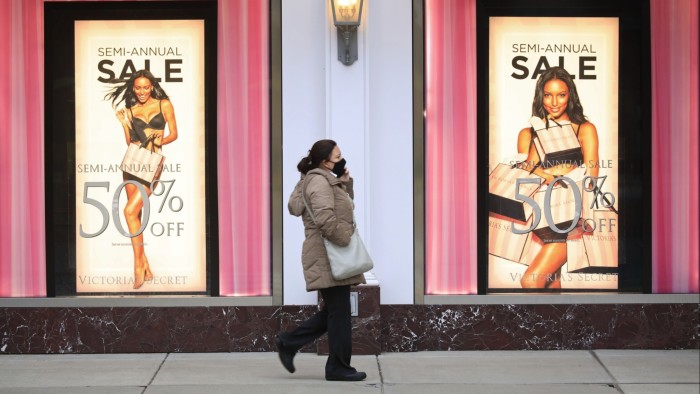Unlock the Editor’s Digest for free
Roula Khalaf, Editor of the FT, selects her favourite stories in this weekly newsletter.
Victoria’s Secret is trying to repel an admirer. The US lingerie company has moved to adopt a so-called poison pill defence after Australian investment group BBRC International boosted its stake in the company to 13 per cent, declared its holding an “active” one and made regulatory filings that would allow it to increase its holding to almost 50 per cent.
The company’s defence mechanism works like this: once an investor acquires more than 15 per cent of Victoria’s Secret, all other shareholders will be entitled to purchase one new share for every share they currently own at a 50 per cent discount. The plan, aimed at making it prohibitively expensive for any investor to acquire a controlling stake, will remain in effect for one year.
These kinds of takeover shields, whose use jumped during the Covid-19 pandemic, are cropping up once again. Companies whose share prices have been walloped by the recent market turmoil are rushing to shore themselves up against bids from opportunistic rivals. They can also be useful to repel activist campaigns — a rising phenomenon — by putting a lid on the stakes such investors can buy.
Already, 13 public companies in the US have adopted poison pills for the year to date, according to Deal Point Data. More are in the works, Lex hears from advisers busily helping clients put together plans they can keep in reserve, as well as update existing ones.
Poison pills rarely get triggered. The simple fact of their existence can leave a bitter taste. By protecting entrenched management and boards from takeovers, they dull some of the pressure to perform. They also remove an element of choice from shareholders who may want to maximise their returns by selling their stakes in an acquisition.
But they do serve a function, especially in the US where it is possible for investors to buy up near-controlling stakes without negotiating with management, paying a premium, or worrying about thresholds at which they would have to bid for the whole company.
Victoria’s Secret, which was spun out of L Brands only four years ago, has good reason to fight for its independence. Once the linchpin of the $12bn-a-year US lingerie market, the company has struggled in recent years as its push-up bras fell out of favour. Its stock is still languishing about 70 per cent below its peak in 2021.
Under new CEO Hillary Super, the company is showing signs of a turnaround. It reported its first rise in annual revenue and net profit in three years. Rather than a bidder, Victoria’s Secret may simply need more time. Sometimes these pills can be more prophylaxis than poison.
